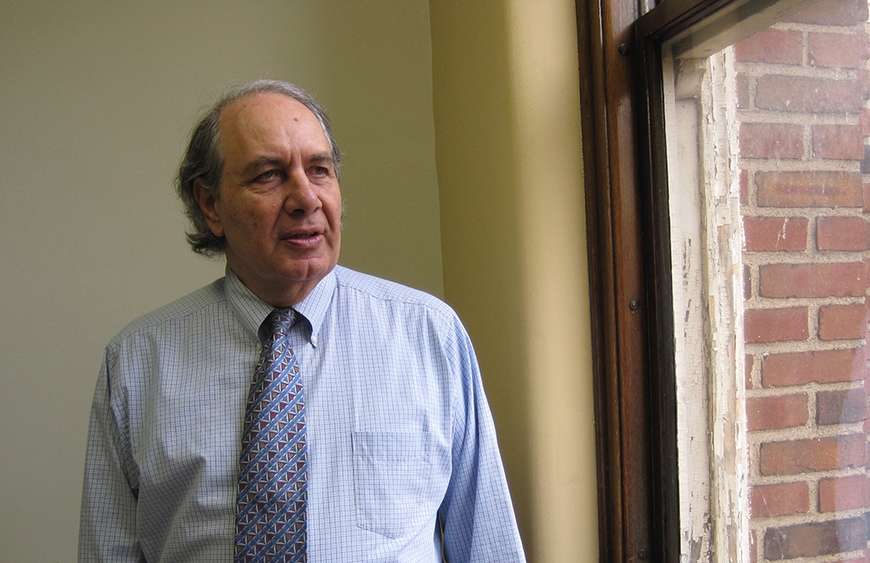Nabil Matar on Early Modern Capitivity Narratives
Professor Nabil Matar's pioneering scholarship in the past two decades has focused on relations between early modern Britain, Western Europe, and the Islamic Mediterranean; this year, he published a new book, Mediterranean Captivity through Arab Eyes, 1517-1798 (Brill), that describes "the other side of the coin" to more widely available early modern European stories of being held captive. Matar has published two book trilogies of research on Arabs and Europeans in the early modern world via university presses Cambridge and Columbia, among others. Along with collaborations with other scholars, he has also completed British Captives in the Mediterranean and the Atlantic, 1563-1760 and the 2018 anthology Arab Impressions of America: Writings from Early Emigrants (1876-1914). He generously answered questions via email.
What was the genesis of your most recent book?
The book was a sequel, in a way, to my book British Captives in the Mediterranean and the Atlantic, 1563-1760 (2014). I wanted to show the other side of the coin. My research for An Arab Ambassador in the Mediterranean World: The Travels of Muhammad ibn ‘Uthmān al-Miknāsī, 1779-1788 (2015) alerted me to the subject, since he described his experience as a negotiator for the liberation of Moroccan captives in the 1770s. What also motivated me were the many sculptures of Arab, Ottoman, and Muslim captives that I saw: they were ubiquitous in western representation, from Rome to Vienna, from Valletta to Berlin, and from Catania to Atlanta, Georgia.
You're often written about captivity in the early modern Mediterranean. What drives your interest in this topic?
Actually, every book I have completed has included some reference to captivity—perhaps part of an endless catharsis to overcome the memory of my own captivity, 35 years ago. [Then a professor at the American University in Beirut, Matar was abducted by an armed militia and held for six months during Lebanon's civil war.] In regard to scholarship: the study of captivity shows the impact of Mediterranean conflicts on the "small" people who suffered at the hands of multi-national and multi-religious pirates and privateers. They were merchants and sailors, pilgrims and scholars, men and women and children: I want to tell some of their stories.
Arab captives' religious culture militated against publishing their experiences, unlike the European captives. Can you describe how and where you tracked down accounts of Arab captives for this book?
Early modern Arabic did not have the divisions of genre that characterize European literature. At the same time, some of the libraries I visited in Tunis, Rabat, Fez, and Amman did not have comprehensive cataloguing. And so I read and read through manuscripts from the early modern period—until I came across a letter or a government record or a personal anecdote. Cumulatively, the findings furnished a picture of the Arab experience of Mediterranean captivity, unique in its religious and cultural sensitivity.
What are the pleasures of doing deep research?
Discovery. Sometimes I knew I was the first person looking at material that had been unread for three or four centuries.
What's next?
I am finishing a book, Luther and the Papacy through Arab Eyes, 1517-1798, to appear in 2022-2023 (pending travel to archives). It will be my last book in the quartet of books “Through Arab Eyes.” I plan then to return to where my academic training began, over 50 years ago: English mysticism in the second half of the seventeenth century. I want to work on a book about two religious writers who have played a prominent role in my life: Anglican Thomas Traherne (d. 1674) and Nonconformist Peter Sterry (d. 1672).
Favorite work to teach these days?
There is never anything more enjoyable than The Odyssey.
Most common academic writing advice you find yourself offering students?
Re-read what you write (especially if you are using a computer). It is, of course, an advice I sometimes forget to heed.
Movie you've enjoyed recently?
Gaza mon amour, directed by Tarzan Nasser and Arab Nasser.



